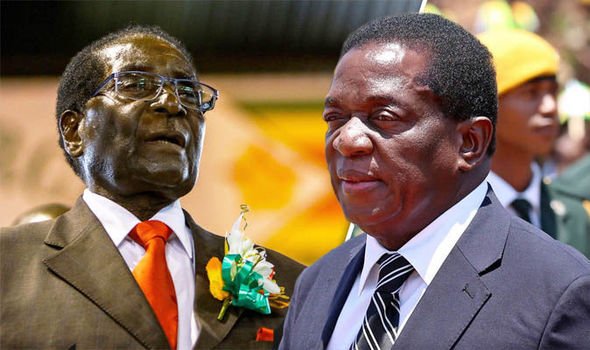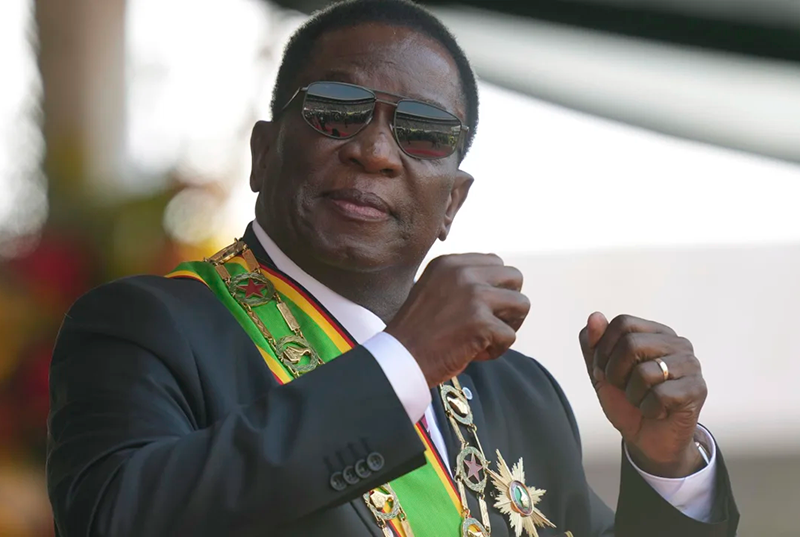- Featured
- No Comment
How to get away with a coup – Zimbabwe’s example to the world

By Alexander Noyes & Norma Kriger for Newsweek
After a global lull, coups are back. But this new wave of coups—concentrated mostly in Africa—are more sophisticated than past, often brutish, power grabs.
Coup makers now frequently use softer, smarter approaches to gain power, and evade outside anti-coup measures aimed at punishing—and deterring—overthrows. It’s past time for international supporters of democracy to take a harder line against all types of coups.
Africa is the most coup-prone region of the world, with an uptick over the past decade. Zimbabwe’s 2017 coup, which installed now-President Emmerson Mnangagwa in power, put an end to two years with no coups or attempts in Africa, the longest such streak in decades. Things have deteriorated since.
In 2023, The New York Times declared that six coup governments in West Africa formed “the longest corridor of military rule on Earth.”
Coup leaders increasingly claim their actions are not coups. The military in Zimbabwe—in the midst of its coup against longtime autocrat Robert Mugabe—stated on live TV: “We wish to make it abundantly clear that this is not a military takeover.” They do this to seek domestic and outside support to help legitimate their illegal power grabs.
Yet anti-coup norms—stood up after the Cold War—have eroded. This is due in part to inconsistent enforcement by outside actors. Western countries often have more important strategic priorities other than democracy (see Chad), while other global powers simply do not share this norm (think China and Russia).
Due to the obviously covert nature of coup planning, research on coup plots is inherently difficult. Yet scholars have shown that coup makers actively engage outside actors ahead of their actions fairly regularly. Recent examples include Egypt in 2013, Turkey in 2016, Zimbabwe in 2017, and Sudan in 2019.

Zimbabwean coup makers engaged in an effective campaign of pre-coup diplomacy to shape domestic and external responses. And it worked. Zimbabwe’s coup was unique in that it drew scant rebuke from regional and international actors.
It is therefore the ideal example to illustrate an emerging “smart coup” playbook. We talked to many Zimbabwean and international officials who were in office during the coup and asked them how the plot succeeded while evading censure.
The playbook follows four main steps: First, carefully construct a narrative—both publicly and privately—that the current leader must go, either due to being in office too long or because the regime is corrupt.
Second, co-opt the opposition by dangling symbolic and tangible rewards under new leadership. Third, curry favour with your neighbours. Finally, convince foreign countries that a new change will be legal, mostly non-violent, and will be beneficial to their interests.
Zimbabwe’s coup plotters drew on years of formal and informal networks built while serving in Mugabe’s government, including posts in China, Western countries, the U.N., and regional bodies. They exploited the pro-democratic movement’s desire to see Mugabe removed from power, promising a “unity government” once the tyrant had been toppled (this of course didn’t happen).
Next, the plotters drew on their civilian and military networks with key neighbours and regional bodies to stifle any criticism of their intervention. Zimbabwe’s powerful liberation war veterans—many who occupied top positions abroad—also had regular meetings with sister movements in the region.
Finally, the military capitalized on the near obsessive anti-Mugabe sentiments among Western countries, who largely desired a normalization of relations and saw hope in Mnangagwa‘s rhetoric of a “new dispensation” leading to reengagement.
Western officials feared calling a coup a coup would prematurely sour relations with the incoming government and the pro-change regional bloc or force their governments to suspend aid.
Falling for the smart coup gambit looks unwise in retrospect. Zimbabwe has not fared better under new leadership. Political violence continues, the economy flails, and the country still largely remains ostracized internationally.
To avoid falling victim to similar smart coups moving forward, democracy supporters should take two main steps. First, to prevent plotters from wielding “soft power” effectively, pro-democracy supporters should avoid being used as pawns by future smart coup plotters.
Rather than accepting coups in exchange for elusive and illusive influence, these actors should call a spade a spade and pressure regional bodies and other foreign governments to do the same.
Second, external actors need to deter and more effectively punish other forms of unconstitutional behaviour. Such actions include political violence to ensure the incumbent wins elections and the scrapping of presidential term limits, which are often used to justify coups (as seen recently in Gabon and Guinea).
Modern coup plotters have evolved. International efforts to prevent and respond to these undemocratic seizures of power must do so as well.
Alexander Noyes is a fellow in the Strobe Talbott Center for Security, Strategy, and Technology at the Brookings Institution and former senior advisor in the Office of the Secretary of Defence for Policy.
Norma Kriger is a visiting researcher at Georgetown University’s School of Foreign Service.
